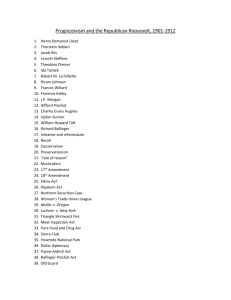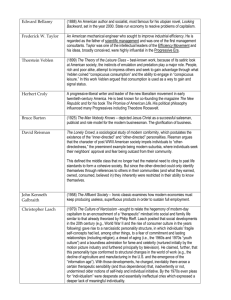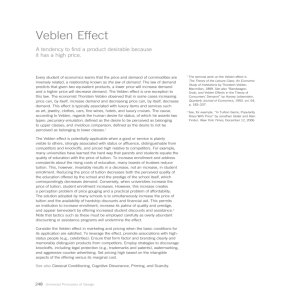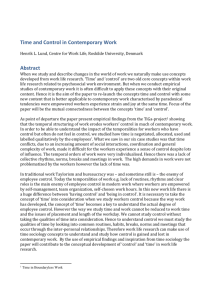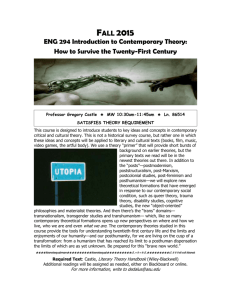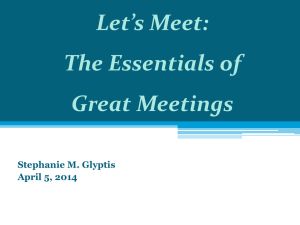Barker-Tom-The-role-of-financial-capital-in-debates-about
advertisement
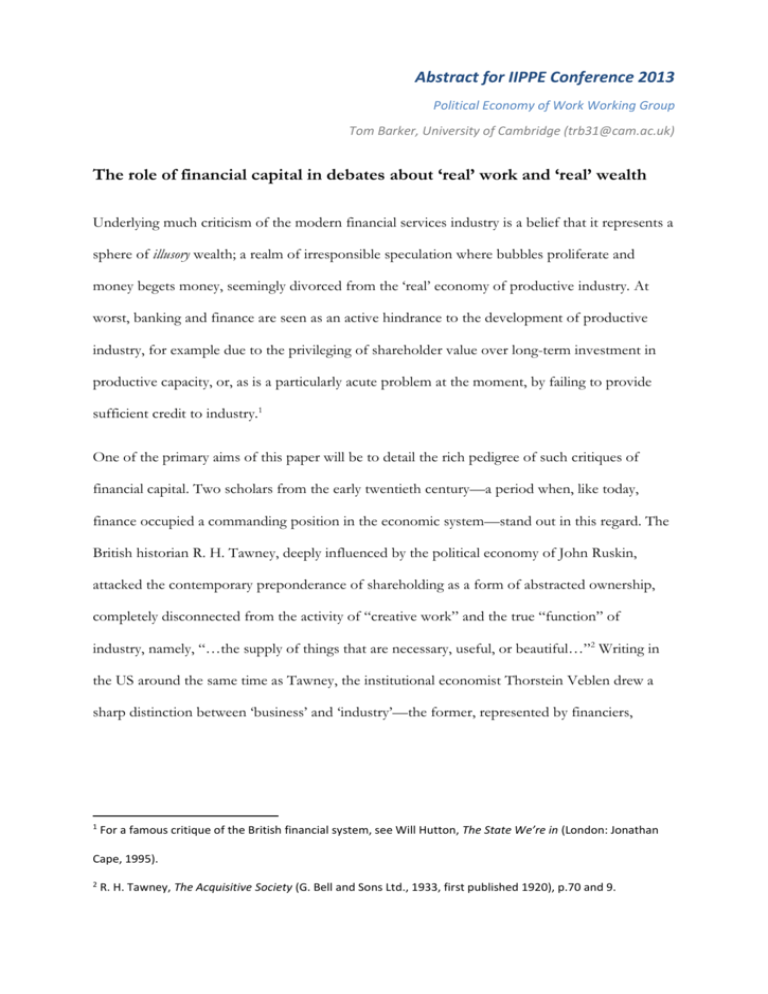
Abstract for IIPPE Conference 2013 Political Economy of Work Working Group Tom Barker, University of Cambridge (trb31@cam.ac.uk) The role of financial capital in debates about ‘real’ work and ‘real’ wealth Underlying much criticism of the modern financial services industry is a belief that it represents a sphere of illusory wealth; a realm of irresponsible speculation where bubbles proliferate and money begets money, seemingly divorced from the ‘real’ economy of productive industry. At worst, banking and finance are seen as an active hindrance to the development of productive industry, for example due to the privileging of shareholder value over long-term investment in productive capacity, or, as is a particularly acute problem at the moment, by failing to provide sufficient credit to industry.1 One of the primary aims of this paper will be to detail the rich pedigree of such critiques of financial capital. Two scholars from the early twentieth century—a period when, like today, finance occupied a commanding position in the economic system—stand out in this regard. The British historian R. H. Tawney, deeply influenced by the political economy of John Ruskin, attacked the contemporary preponderance of shareholding as a form of abstracted ownership, completely disconnected from the activity of “creative work” and the true “function” of industry, namely, “…the supply of things that are necessary, useful, or beautiful…”2 Writing in the US around the same time as Tawney, the institutional economist Thorstein Veblen drew a sharp distinction between ‘business’ and ‘industry’—the former, represented by financiers, 1 For a famous critique of the British financial system, see Will Hutton, The State We’re in (London: Jonathan Cape, 1995). 2 R. H. Tawney, The Acquisitive Society (G. Bell and Sons Ltd., 1933, first published 1920), p.70 and 9. Abstract for IIPPE Conference 2013 Political Economy of Work Working Group Tom Barker, University of Cambridge (trb31@cam.ac.uk) concerned with acquisition and money-making, the latter, led by engineers, with servicing the genuine needs of the community.3 This paper will argue that, underlying such characterisations is a conception of real work, based on a core of quasi-ethical principles including effort, service to the community, useful output, and just reward. Such principles recur in numerous nineteenth and early twentieth century critiques of capitalism, representing ideals that industry should uphold, even if it is often found wanting in its contemporary state. The financial sphere, by contrast, is frequently depicted as a corrupt shadow world of false work, in which financiers pursue (and frequently achieve) exorbitant rewards at the expense of productive industry, creating illusions of rising prosperity through unsustainable asset bubbles. In the figure of the rentier, financial capital finds its apotheosis—a luxurious way of life sustained without work through unearned income.4 As well as exploring the history of these ideas, this paper will discuss their legacy and relevance in light of the recent financial crisis and contemporary debates about financialization.5 Clearly, there is a danger in merely caricaturing the work of the financial sector and ignoring its legitimate role and contribution to production. Moreover, there is a need to recognise the stressful and exhausting nature of many jobs in the modern financial sector. But this does not detract from 3 D. Spencer, The Political Economy of Work (Abingdon and New York: Routledge, 2009), p.103; T. Veblen, The Engineers and the Price System in The Collected Works of Thorstein Veblen, vol.viii ((Chippenham: Routledge/Thoemmes Press, 1994, first published 1918/19). 4 Keynes famously looked forward to the “euthanasia of the rentier”, J. M. Keynes, The General Theory of Employment, Interest and Money (Houndmills: Palgrave MacMillan, 2007, first published 1936), p.376. 5 T. I. Palley, ‘Financialization: What it is and why it matters’, Working paper no.525 (Levy Economics Institute, December 2007), available online <http://www.levyinstitute.org/pubs/wp_525.pdf> Abstract for IIPPE Conference 2013 Political Economy of Work Working Group Tom Barker, University of Cambridge (trb31@cam.ac.uk) the need to (re)construct an understanding of real work as a response to contemporary economic problems, which can contribute to a broader project to revive a popular understanding of the moral economy as a space of mutual prosperity, justice and reciprocity.
